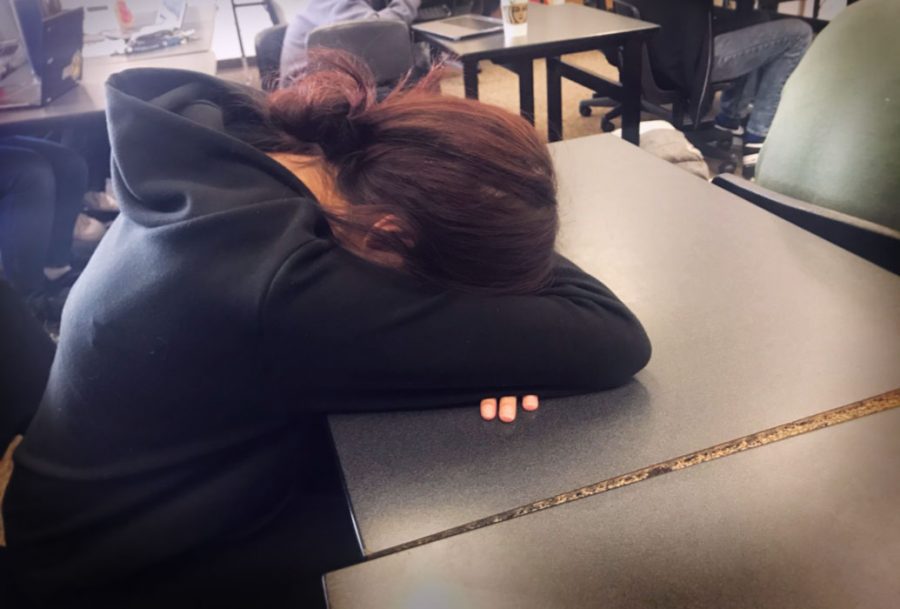Sleep Is Crucial for Teens
March 29, 2020
Sleep is a vital part of everyone’s life as it’s essential for maintaining regular brain and body functions. Insufficient sleep may cause poor decision making and a decrease in memory function; general attention is also affected. So why is it that teens constantly disregard their need to keep a healthy sleep schedule?
Students may wake up earlier than they should for school, and they also tend to stay up too late, resulting in unhealthy sleep schedules. It is recommended that teens from the ages 13 to 18 get eight to ten hours of sleep each night, but why do teens only get six to seven hours?
According to the website of the Centers for Disease Control, “During puberty, adolescents become sleepy later at night and need to sleep later in the morning as a result in shifts in biological rhythms.” This, paired with early school times, may lead to unhealthy sleep habits.
It’s common to find that teens may stay up later than they should while using their cell phones. It has been shown to become more difficult to sleep when using a phone before going to sleep due to the blue light produced by phone screens.
“The blue light that’s emitted from these screens can delay the release of sleep-inducing melatonin, increase alertness, and reset the body’s internal clock to a later schedule,” according to the National Sleep Foundation. Without the proper production of melatonin, teens find it more difficult to fall asleep, and their sleep quality is also affected.
Not only is a lack of sleep unhealthy, but the shift in our natural circadian rhythms may also have negative effects on the body. Not only that, but it can negatively affect school performance, which may cause stress levels to rise.
“External factors… greatly affect the quantity and quality of our sleep,” according to an article on Harvard University’s website. Not only are sleep patterns affected by biological processes, but external factors also affect how adolescents sleep.
External factors such as cell phone use, stress, and anxiety are common for teens and often cause difficulty falling asleep and fatigue during the day. This then causes some to drink stimulants such as energy drinks or coffee. This also has a negative effect on how teens develop and can be dangerous for teens to consume in large amounts.
It’s important that teens and young children get healthy amounts of sleep, and schools can play a role in this. It’s recommended by the CDC that school starts no earlier than 8:30.


